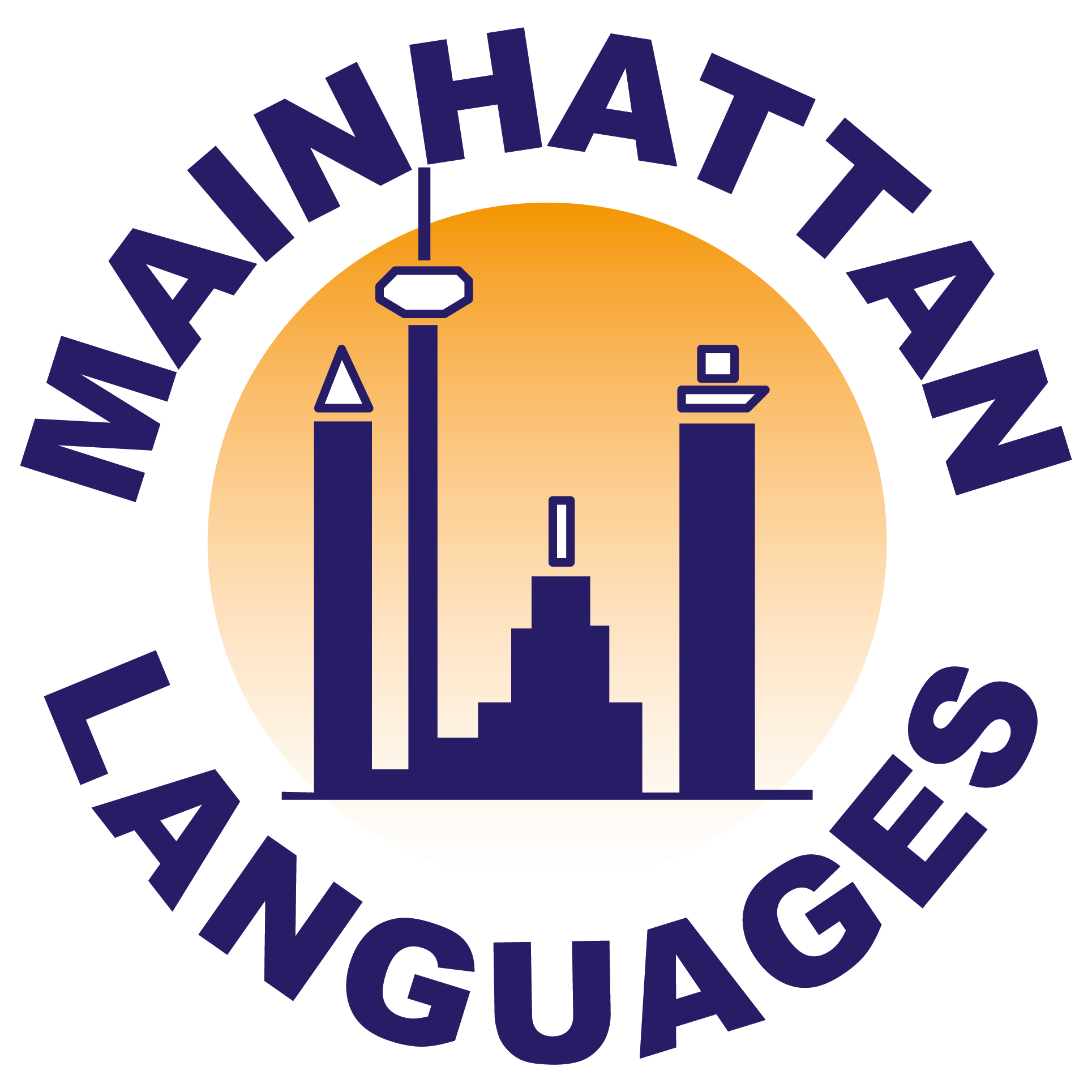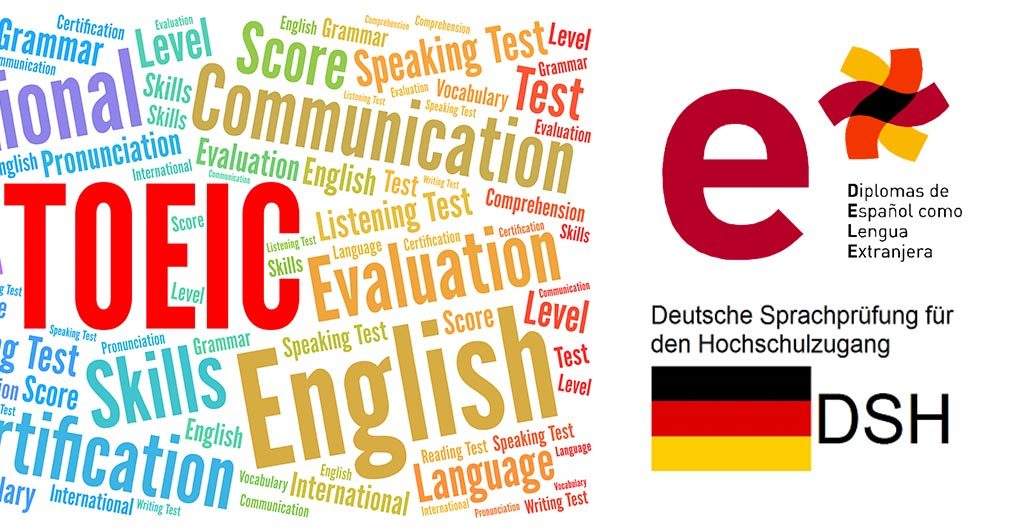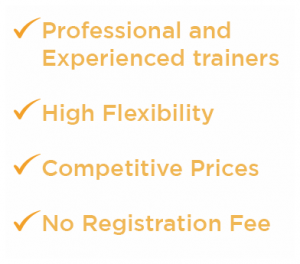German exams
Mainhattan Languages offers specific preparatory courses for the DSH, GDS,TestDaf, ZDFB, and several other German tests.
DSH – Deutsche Sprachprüfung für den Hochschulzugang ausländischer Studienbewerber (“German Language Test for College Admission for Foreign Students”)
Similar to the TestDaF; administered in Germany and by some licensed schools. The DSH examination is used to prove a foreign student’s ability to understand lectures and study at a German university. The duration of the course is approx. 1200 hours.
Großes Deutsches Sprachdiplom (GDS, “Advanced German Language Diploma”)
Students taking the GDS must be virtually fluent in German as it is rated (by some countries) as being the equivalent of a German teaching qualification. The exam covers the four skills (reading, writing, listening, speaking), structural competence and dictation. In addition to spoken fluency, candidates will need advanced grammatical ability and be capable of preparing texts and discussing issues about German literature, natural sciences and economics.
TestDaF – Test Deutsch alsFremdsprache (“Test of German as a Foreign Language”)
The TestDaF serves as proof of sufficient German language skills for people who wish to study at a German university.
As standardized exam for meeting university language requirements, the TestDaF exam is equivalent to the DSH exam (Deutsche Sprachprüfung für den Hochschulzugang).
Students with no prior knowledge of German can reach the required language level in approximately 1200 hours at Mainhattan Languages.
For the TestDaF we recommend all students who have successfully completed the level C1 to take our four-week TestDaF preparatory course.
Zentrale Mittelstufenprüfung (ZMP, “Central Intermediate Test”)
Which is accepted by some German universities as proof of German proficiency. The ZMP requires 800-1000 hours of instruction. The examination tests reading comprehension, listening, writing skills, and verbal communication at an advanced/intermediate level.
Zertifikat Deutsch (ZD, “Certificate German”)
Internationally recognized proof of a basic working knowledge of the German language. Candidates must be able to deal with everyday situations and have a command of basic grammatical structures and vocabulary. Students who have taken about 500-600 class hours can register for the exam.
Zertifikat Deutsch für den Beruf (ZDfB, “Certificate German for Business”)
A special German test aimed at business professionals.The ZDfB is specifically for those students interested in business relations. The candidate will show that he can cope with general day-to-day business situations both orally and in writing. Exam consists of written section, structures/vocabulary, reading comprehension, listening comprehension, business correspondence, plus oral examination.
Prüfung Wirtschaftsdeutsch (PWD)
“Prüfung Wirtschaftsdeutsch International” (PWD) is an internationally recognized test given at Carl Duisberg Centren, the Goethe Institute and the Association of German Chambers of Commerce and Industry. The standardized exam is carried out around the world and is recognized by employers in many countries as evidence of a high level of business language proficiency in German. The level of PWD is between levels B2 and C1 of the European Framework.
English
TOEIC – The Test of English for International Communication (TOEIC) is “an English language test designed specifically to measure the everyday English skills of people working in an international environment.”
You can take the TOEIC Test at Mainhattan Languages at any time.
Cambridge English Language Assessment is part of the University of Cambridge and has been providing English language assessments and qualifications for over 100 years. Cambridge English exams are taken by over 5 million people each year.
KET (Key English Test) an elementary level qualification. It covers basic practical English, such as understanding simple questions, instructions and phrases, expressing simple opinions and needs, interacting with English speakers who talk slowly, completing forms and writing short messages.
PET (Preliminary English Test) shows that you have mastered the basics of English and now have practical language skills for everyday use.
FCE (First Certificate in English) an upper-intermediate qualification. Learners use this qualification for study in English at foundation or pathway level and to work in English-speaking business environments.
CAE (Certificate in Advanced English) a qualification for high achievers. Learners use this qualification for undergraduate or graduate-level study and to work at professional or managerial level in international business. Cambridge English: Advanced (CAE) demonstrates that a learner has the English language skills needed to follow any undergraduate academic course, participate in academic tutorials and seminars, carry out complex research and communicate effectively at a managerial level in an international business setting.
CPE (Certificate of Proficiency in English) a qualification which demonstrates proof of exceptional English ability and ability to use English at near-native levels in a wide range of situations. Learners use this qualification to study postgraduate academic courses, lead high-level research projects and academic seminars and communicate effectively at an upper managerial and board level in international business.
IELTS The IELTS (International English Language Testing System) is designed to assess the language ability of candidates who need to study, work or migrate to an English-speaking country (Australia, Canada, New Zealand, UK and USA).
IELTS is available in two test versions academic – for people applying for higher education or professional registration, and General Training for those migrating to Australia, Canada and the UK, or applying for secondary education, training programmes and work experience in an English-speaking environment. Both versions provide a valid and accurate assessment of the four language skills: listening, reading, writing and speaking.
TOEFL (Test of English as a Foreign Language) is a standardized test to measure the English language ability of non-native speakers wishing to enroll in English-speaking universities. The test is accepted by many English-speaking academic and professional institutions. TOEFL is one of the two major English-language tests in the world, the other being the IELTS.
Spanish
D.E.L.E
Diplomas of Spanish as a Foreign Language (DELE) are official titles certifying degree of competence and mastery of the Spanish language, granted by the Ministry of Education, and Culture of Spain.
Diplomas of Spanish as a Foreign Language (DELE) are divided into six levels:
Spanish Diploma Level A1 (Elementary)
Certifies that the student is able to communicate using the language in a basic way in situations having to do with immediate needs or everyday situations.
Spanish Diploma Level A2 (Low – Intermediate)
Certifies that the candidate can understand commonly used, everyday phrases and expressions related to areas of experience especially relevant to them (basic information about themselves, and their families, shopping, places of interest, work, etc.).
Spanish Diploma Level B1 (Intermediate)
Certifies candidates’ capacity to understand the gist of clear texts, in standard language, if they involve well-known topics related to work, studies or leisure. It also certifies students’ ability to deal with most situations that occur while travelling in areas where Spanish is spoken; to produce simple and coherent texts about familiar topics, or topics of personal interest; and lastly to be able to describe experiences, events, wishes and hopes, as well as to be able to briefly express opinions or explain plans.
Spanish Diploma Level B2 (Upper- intermediate)
Certifies students’ ability to interact with native speakers with a sufficient degree of fluency and spontaneity to enable easy and natural communication between interlocutors; produce clear and detailed texts about diverse topics, as well as defend an opinion about general topics, expressing the pros and cons for each argument; and lastly, understand the gist of complex texts about both concrete and abstract topics, including technical texts, provided they are within the candidate’s area of expertise.
Spanish Diploma Level C1 (Effective Operational Proficiency)
Certifies sufficient linguistic competence to understand a wide variety of lengthy, and somewhat demanding texts, as well as to grasp implicit meaning in the same; to express themselves fluently and spontaneously without apparent effort to find the right words; to be able to use the language flexibly and effectively for social, academic and professional purposes; and finally, to be able to produce clear, well-structured and detailed texts about topics of some complexity, correctly using mechanisms of organization, articulation and cohesion in the text.
Spanish Diploma Level C2 (Mastery)
Certifies sufficient linguistic competence to communicate effectively in any situation, proving ability to spontaneously adapt to any context, with a high degree of precision. The language users show subtle control of nuances which allow for fluent and natural expression in all interactions.





